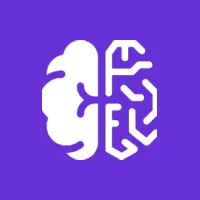The combination of generative AI with Azure OpenAI is radically changing how enterprises think about automation, content generation, and decision-making. With the advancements of language models such as GPT-4, organizations can not only create considerable efficiency and productivity but also capitalize on innovative business opportunities in ways we have never seen before. Generative AI allows organizations to create complex text outputs automatically, generate creative text outputs instantly, and analyze data in real time for new opportunities for efficiency and growth.
The shift to generative AI is not without challenges to organizations. Enterprises should be aware of data privacy, implementation costs, and ethical issues associated with generative AI to fully realize potential.
Benefits of Azure OpenAI Integration
1. Better Content Creation
Generative AI through Azure OpenAI allows companies to automate the process of producing well-written, on-brand content across various formats, including blog posts, product descriptions, reports, and marketing items. Automation speeds up content production cycles and guarantees the consistency of brand voice. This enables marketing and communications teams to focus on strategy instead of manual writing. Even more impressively, AI-generated content can automatically adjust writing to specific audience segments, increasing conversion and engagement.
2. Better Customer Experiences
When generative AI is built into customer service platforms, organizations can implement intelligent chatbots and virtual assistants able to give customer support at any time of day – from anywhere in the world – personalized to the specific customer’s needs. They rely on natural language understanding to answer customer inquiries immediately, and at the same time improve the machine learning models quicker. Generative AI promotes better customer satisfaction, while simultaneously relieving the pressure and demands on human agents, while they focus their expertise on complex problem-solving. Azure OpenAI conversational AI will help companies provide consistent, scalable customer interactions that encourage general trust and brand loyalty.
3. Data-Driven Decision Making
Generative AI models excel at synthesizing and interpreting large volumes of unstructured data, enabling businesses to uncover actionable insights and predict future trends. Whether it’s forecasting market demand, optimizing supply chains, or identifying emerging risks, AI-driven analytics provide decision-makers with a competitive edge. Azure OpenAI integration allows companies to build custom solutions that transform raw data into clear, contextualized information for faster, more informed business decisions.
Difficulties with Azure OpenAI Integration
1. Data Privacy and Security
Applications using generative AI frequently require access to sensitive enterprise data, which brings privacy and security risks. Companies must put in place well-prepared encryption, access controls, and data governance so that data may be effectively protected while in transit and at rest. In particular, organizations must comply with laws such as GDPR, HIPAA, and CCPA in order to avoid legal and reputational risks associated with breaches of confidentiality. When deploying secure AI solutions, organizations should prepare a comprehensive security framework around their intended usage.
2. High Implementation Costs
Utilizing generative AI solutions can have initial costs, including continuous cloud infrastructure, application to model training, and ongoing service fees. Businesses will need to price these considerations, including costs, return on investment, and access models. Cost containment strategies – e.g., the scalable payment model of Azure – “Pay-as-you-go” models, containment, and optimization – will assist in containing future cost risk in adopting new AI solutions.
3. Model Bias and Ethical Implications
AI models are trained on large data sets and can learn, or even better, augment bias based on that data resulting in outputs that are unjust, contrary to ideals of capable AI, or less accurate. Organizations will have to track model usage, assess fairness, and reassess the training data for effectiveness and manage these bias issues. Ethical AI as governance will help to maintain transparency, accountability, and trustworthiness with AI processes.
Empirical Edge: Your Partner in Azure OpenAI Integration
We specialize in guiding enterprises through each stage of integrating Azure OpenAI generative AI technologies. Our expertise ensures that your AI efforts will be innovative, secure, ethical, and consistent with your business strategy.
Our primary service offerings include:
- AI Solutions Built for You: Developing customized AI-powered applications that operate seamlessly within your existing workflows and systems.
- Data Security and Compliance: Comprehensive frameworks that ensure all AI implementations are of industry standard and meet compliance requirements.
- Continuous Support and Optimization: Continuous monitoring, adjustment, and support to maintain the optimal level of accuracy and relevance of the AI model over time.
As a strategic partner of Empirical Edge into Azure OpenAI, you can safely leverage generative AI to find new efficiencies, improve customer engagement, and drive business growth.
Conclusion
The integration of generative AI with Azure OpenAI will provide a transformational opportunity for enterprises that are ready to innovate and scale. It is important to be aware of all of the challenges facing enterprises like security, cost, and ethical considerations, but the benefits of improving productivity, improved customer experience, and data experiences should push your organization to embrace this an exciting time in digital transformation. With a purposeful approach and the expertise of integration partners like Empirical Edge, organizations can address the challenges of generative AI and develop a program that can support a strategy that will realize the full potential of generative AI in the digital age.
Transform Your Business with Secure Generative AI Solutions
Ready to unlock the power of generative AI? Empirical Edge helps businesses seamlessly integrate Azure OpenAI to build secure, scalable, and intelligent applications. From strategy to deployment, our experts ensure your AI journey delivers measurable results and long-term growth.
Frequently Asked Questions
Azure OpenAI is a cloud-based service from Microsoft that provides access to advanced AI models like GPT and DALL·E. It enables businesses to build intelligent applications such as chatbots, automated content generators, and AI-powered analytics while maintaining enterprise-grade security and compliance.
Integration helps organizations automate workflows, improve customer experiences, generate high-quality content, enhance decision-making with AI insights, and scale operations securely on Microsoft Azure infrastructure.
Yes. Azure OpenAI offers built-in security, private networking, role-based access control, and compliance with global standards. This makes it suitable for industries like healthcare, finance, and government that require strict data protection.
Companies can use it for customer support automation, personalized recommendations, document summarization, code generation, fraud detection, knowledge assistants, and marketing content creation.
Healthcare, finance, retail, manufacturing, logistics, education, and SaaS companies are rapidly adopting generative AI to improve efficiency, reduce costs, and drive innovation.









